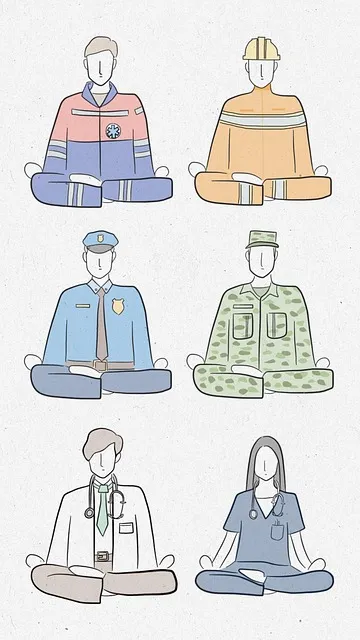Kaiser's Lone Tree location provides comprehensive inpatient mental health care focused on emotion regulation techniques. Through evidence-based practices integrated into podcasts, group discussions, and counseling, patients learn stress reduction, resilience-building, and emotional management skills. This holistic approach, including community education initiatives, equips individuals with tools to cope with future stressors, reduce stigma, and enhance overall well-being, fostering emotional intelligence and stronger relationships.
Emotion regulation is a vital skill for managing mental health, especially in inpatient care settings. This article explores why teaching these techniques is crucial for improving patient outcomes at facilities like Kaiser’s inpatient mental health services in Lone Tree. We delve into effective strategies and their benefits, offering insights into how these programs can revolutionize care by empowering patients with tools to navigate and understand their emotions. Discover the impact of these teachings on patient well-being and satisfaction.
- Understanding Emotion Regulation: Why It's Crucial for Inpatient Mental Health Care
- Kaiser's Approach: Inpatient Mental Health Services in Lone Tree
- Teaching Effective Emotion Regulation Techniques: Strategies and Benefits
Understanding Emotion Regulation: Why It's Crucial for Inpatient Mental Health Care

Emotion regulation is a vital component of inpatient mental health care, especially for facilities like Kaiser’s Lone Tree location. Understanding and teaching patients effective emotion regulation techniques can significantly enhance their recovery journey. Inpatient settings provide an ideal environment to introduce and practice these strategies, as patients are surrounded by supportive staff and peers who can facilitate learning.
At Kaiser Lone Tree, incorporating stress reduction methods and resilience-building exercises into the mental wellness podcast series production can empower individuals to manage their emotions. These techniques, often taught through evidence-based practices, allow patients to navigate challenging feelings, reduce anxiety, and improve overall well-being. By mastering emotion regulation, patients gain valuable tools to cope with future stressors, fostering a sense of control and promoting positive mental health outcomes.
Kaiser's Approach: Inpatient Mental Health Services in Lone Tree

Inpatient mental health services provided by Kaiser in Lone Tree represent a comprehensive approach to emotion regulation techniques teaching. This program is designed to help individuals navigate and manage their emotions effectively, utilizing evidence-based strategies such as Mind Over Matter principles. Patients are immersed in an environment that fosters personal growth and self-awareness, enabling them to develop enhanced emotional intelligence and resilience.
The inpatient facility at Kaiser Lone Tree goes beyond traditional therapy by integrating public awareness campaigns development into its curriculum. These initiatives focus on educating the community about mental health issues, thereby promoting early intervention and reducing stigma. Through a combination of individual counseling sessions, group discussions, and confidence-boosting activities, patients are equipped with tools to maintain emotional balance even in challenging situations.
Teaching Effective Emotion Regulation Techniques: Strategies and Benefits

Teaching effective emotion regulation techniques is a powerful tool for individuals seeking to navigate life’s challenges with resilience and adaptability. These strategies empower folks to manage their emotional responses, fostering better mental well-being and enhancing overall quality of life, especially for those exploring options like inpatient mental health care at facilities like Kaiser in Lone Tree. By incorporating methods such as Mind Over Matter principles, empathy building strategies, and conflict resolution techniques, educators can equip students with valuable skills.
Students learn to recognize and acknowledge their emotions, replacing maladaptive coping mechanisms with healthy strategies. This process not only benefits individuals in the moment but also contributes to long-term emotional intelligence and resilience. Conflict resolution techniques, for instance, teach students how to navigate interpersonal challenges constructively, promoting better communication and stronger relationships. Ultimately, these teachings create a sense of self-awareness and agency, enabling individuals to thrive even amidst stressful situations.
Emotion regulation techniques are invaluable tools for improving patient outcomes in inpatient mental health care, as demonstrated by Kaiser’s innovative approach in Lone Tree. By teaching individuals effective strategies to manage their emotions, these programs empower patients to navigate their mental health journeys with greater resilience and self-awareness. This comprehensive approach not only benefits the individual but also contributes to a quieter, more supportive environment for all involved. For those seeking specialized inpatient mental health services in Lone Tree, Kaiser’s program offers a promising path towards emotional well-being and recovery.






